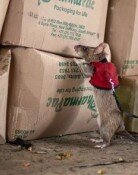Prof. Peterson Fixes Korean Information in Britannica
Prof. Peterson Fixes Korean Information in Britannica
Posted August. 12, 2005 03:04,
When the worlds most prestigious Britannica encyclopedia adds new content on Korea, they seek verification from Mark Peterson (59), the director at the Koreanology center of Brigham Young University in the U.S.
Professor Peterson, a Koreanology expert, has been working on an analysis of how content related to Korea has been dealt with in U.S. textbooks and encyclopedias, and has corrected their errors. He is known as a Korea watchman in the U.S.
On August 10 (local time), I called him to ask how he was doing. He said he is analyzing five world-leading encyclopedias these days. He once found 15 errors in the 1994 edition of Britannica encyclopedia and corrected most of them.
The most important example was: Britannica once described that Korean artists fell behind those of China and Japan in terms of technical percentage of completion or accuracy. He pointed that out and revised it so that the originality of Korea artists is emphasized.
He said, Korea has abundant cultural heritage, and its economy has developed drastically. Accordingly, Korea deserves to be treated properly in foreign textbooks.
He has analyzed U.S. textbooks since 1996 and reviewed more than 80 textbooks. He explained that Korea is mentioned only in a tiny part of world history textbooks and that instead, Korea has been involved in American history a lot when it comes to the Korean War, Korea-U.S. trade, immigration issues, and other aspects.
Professor Peterson pointed out that the important thing is to provide a lot of information on Korea to textbook authors so that they describe Korea more often in U.S. textbooks rather than put a finger on minor errors. That is because they are not distorting information intentionally.
As a matter of fact, one U.S. textbook mentioned Korea in only one line. He said, First, it is important to make sure that the amount of content on Korea increases.
Peterson visited Korea in 1965 as a missionary. Since then, he became interested in Korea and earned a masters and doctors degree on Koreanology. He lived in Korea for 15 years and adopted his two daughters in Korea.
kong@donga.com







